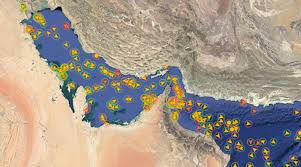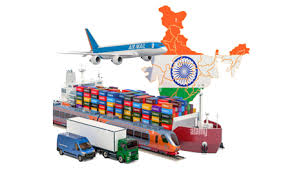With the vision of reducing logistics costs, the Indian government launched the National Logistics Policy (NLP) last year, bringing a paradigm shift in the logistics industry. Witnessing the revolution in the Indian logistics industry, the country is making significant progress across digital integration, service improvement, skill development, logistics cost reduction, EXIM logistics, etc. As a testament to this, India has ranked 38th in the 2023 Logistics Performance Index (LPI).

The launch of the National Logistics Policy has indeed been a game-changer, having a positive impact on various aspects of logistics in the country
The launch of the National Logistics Policy (NLP) has indeed been a game-changer, having a positive impact on various aspects of logistics in the country. The pressing need for digital enhancement and skill development is in line with global best practices and shows a clear commitment to optimising efficiency and competitiveness in the logistics sector.
Achieving the 38th rank in this year’s Logistics Performance Index (LPI) is a significant accomplishment, reflecting the government’s dedication and the hard work of individuals and organisations in the logistics industry. It’s an indicator that India is on the right path to becoming a more reliable and efficient global logistics hub.
Continual investment in infrastructure, technology, and skill development is essential to further improve logistics capabilities, reduce costs, and open up new opportunities for trade and economic growth. The elevating progress of India’s logistics industry and its contribution to economic development over the years is noteworthy.
For further enhancement of NLP implementation, the government has successfully integrated 33 logistics-related digital systems across departments and ministries and registered 590 industry players on ULIP. This aims to overcome logistical issues and promote sector efficiency. The Service Improvement Group (SIG) and E-LoGs platforms have established a strong mechanism to maximise operational functionality in the country.
Through the development of the EXIM logistics group, Logistics Data Bank, Sectoral Plans for Efficient Logistics (SPEL), and NLP Marine, the government is addressing infrastructural gaps, streamlining processes, and accelerating the work efficiency of industry players while facilitating trade.
The government has also sanctioned projects by the Ministry of Road Transport and Highways (MoRTH) and Railways to improve last-mile connectivity to ports, with ports playing a crucial role in making India a globally competitive exporter. To streamline the movement of bulk and break-bulk cargo, Sectoral Plans for Efficient Logistics (SPEL) are being developed. NLP Marine, launched by MoPSW (Ministry of Ports, Shipping, and Waterways), aims to improve port productivity and multimodal connectivity, aiding in accomplishing multimodal operations successfully.
The key objective of the National Logistics Policy is to reduce logistics costs to a single digit. In this direction, a survey-based logistics cost calculation framework is being developed to estimate costs accurately.
CJ DARCL envisions that NLP is a long-term growth plan for the logistics industry, and India will soon attain global recognition in terms of global trade with these high-end initiatives and a welcoming mindset. With this progression, the current focus is re-strengthening India’s pursuit of ranking in the top 25 countries in the World Logistics Performance Index.











